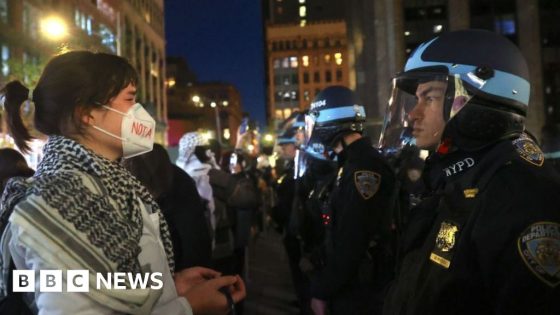The evils of history must be remembered so that they are never repeated.
That assertion is the guiding principle behind The Zekelman Holocaust Center (The HC), located in Farmington Hills; the institution recently underwent a comprehensive $31 million renovation, doubling down on its commitment to preserving the legacy of Holocaust victims and survivors.
The new core exhibition, a collaboration with design firm Ralph Appelbaum Associates, steps away from a traditional approach to history by centering the voices of those who experienced the Holocaust and by highlighting survivors who made Michigan their home after World War II. As the population of survivors dwindles, there is an urgent need to ensure the stories of their experiences remain accessible to future generations. Archival footage, images, artifacts, and interactive videos of survivor testimonies bring to life the stories of those affected by the Holocaust.
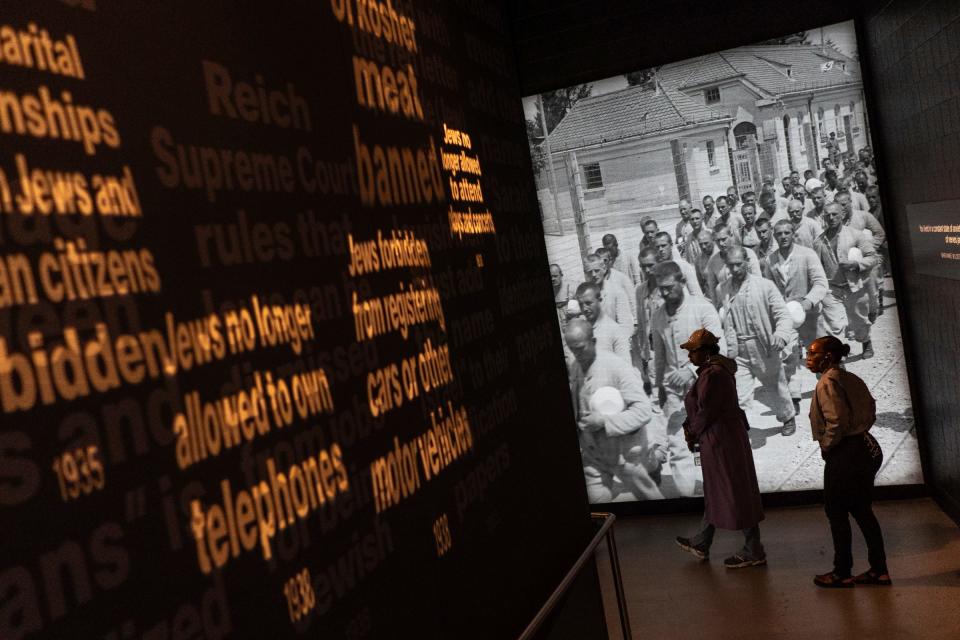
“We’re trying to help people understand what happened in the Holocaust in a personal way,” said Eli Mayerfeld, CEO of The HC. “And then it can have an impact on society so that people think differently about their own actions in an everyday way and ask themselves, ‘What can I do to make this a better society and avoid the kind of problems that happened in Nazi Germany?’
“By localizing the history from the perspective of those who lived it, rather than those who perpetrated it, we are showing that the Holocaust did not happen so long ago or so far away.”
More: Holocaust Memorial Center gets largest ever donation
A long time coming
Director of Curatorial Affairs Mark Mulder said the massive project took nearly eight years to complete.
“It’s an insanely complex project,” he said, “and I think the hardest part was cutting information that was important or meant something to me, but that we just didn’t have the space to tell. Telling people that their favorite thing from the old exhibit is no longer going to be here — also very difficult. It’s not, ‘We didn’t redo this because we hated what was here,’ but because we needed to shift the perspective.
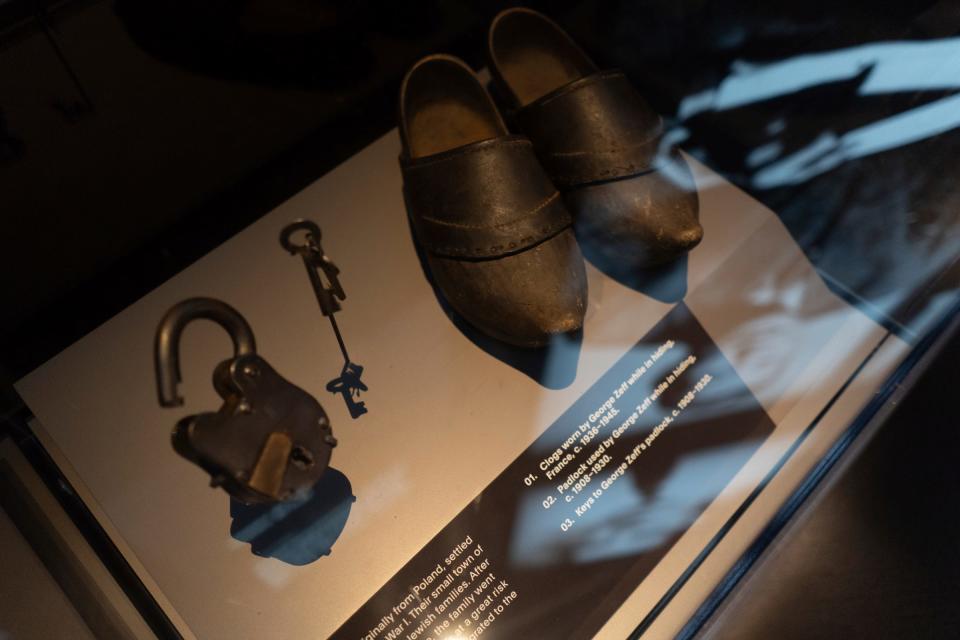

“I think that the experience of coming here now, even though some of the artifacts have been recontextualized, is to get a whole brand-new view of the history of the Holocaust, with this really strong focus on individual stories. So if (people) came before and they learned a lot of foundational information about the Holocaust, coming here now gives you an incredible amount of first-person testimony that gives you a completely different view of the events surrounding it.”
Mulder pointed to a corridor of the exhibit that has particularly resonated with students visiting The HC as a prime example.
“The area that used to be the Abyss is now called People and Possessions,” he said. “It features artifacts that represent the several types of loss people experienced at the hands of the Nazis. For example, there are wedding rings found by U.S. soldiers in Dachau. We use the objects, along with archival footage from before and after the Holocaust, to help our visitors understand that people lost their material items, but they also lost their partners, families and communities.”
Taking it personally
The renovation comes on the heels of the Anti-Defamation League’s announcement that antisemitic attacks rose by 337% in recent months compared with last year, much of it following the Oct. 7, 2023, attack on Israel by Hamas terrorists whose charter calls for the extermination of Jews.
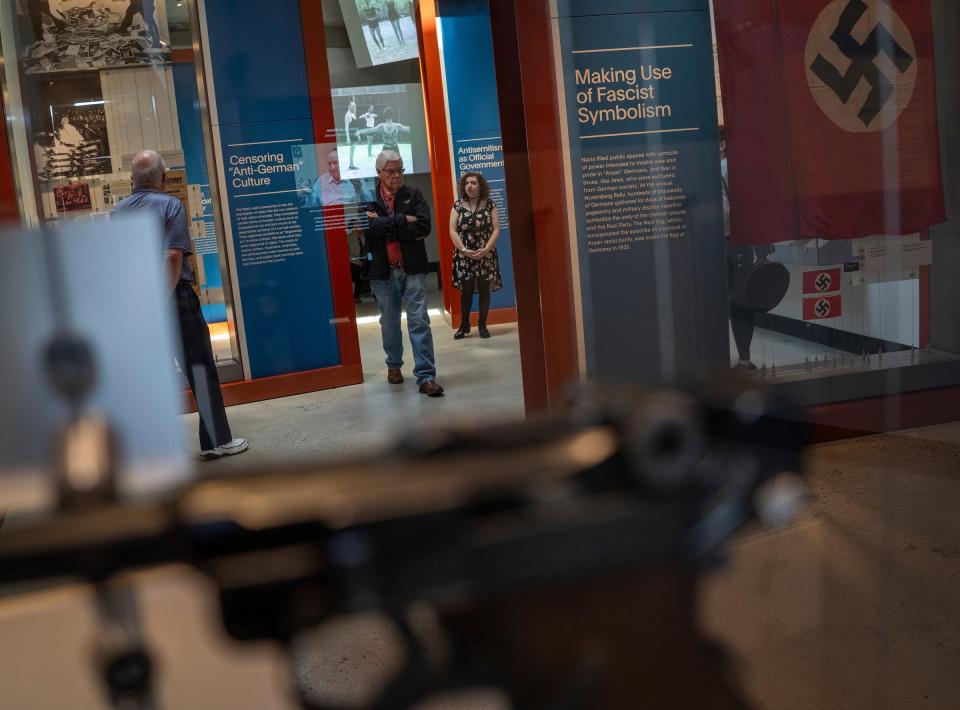

“Rhetoric and propaganda defame the individual and the group and, when sanctioned by the state, lay the groundwork for genocide,” said Mayerfeld. “Learning about the Holocaust helps visitors understand the potential consequences of antisemitism and how to counter it today.”
Arthur M. Horwitz, a lifelong journalist, is also a second-generation Holocaust survivor who regularly speaks about his mother’s experiences. Aged 11 when the war started, Sally Horwitz passed away in 2014, but her son keeps her story present.
“The new exhibit is refreshingly focused on the individual stories of survivors,” he said. “The core story is still the same—the outcome, unfortunately, is still unchanged. However, to see it through the eyes of individuals, many who are right here, from Michigan, or used to live in Michigan and have since passed away, gives it much more impact. They were your neighbors; you could have run into them in the supermarket, maybe, back in the day, or in the line in front of you pumping gas.
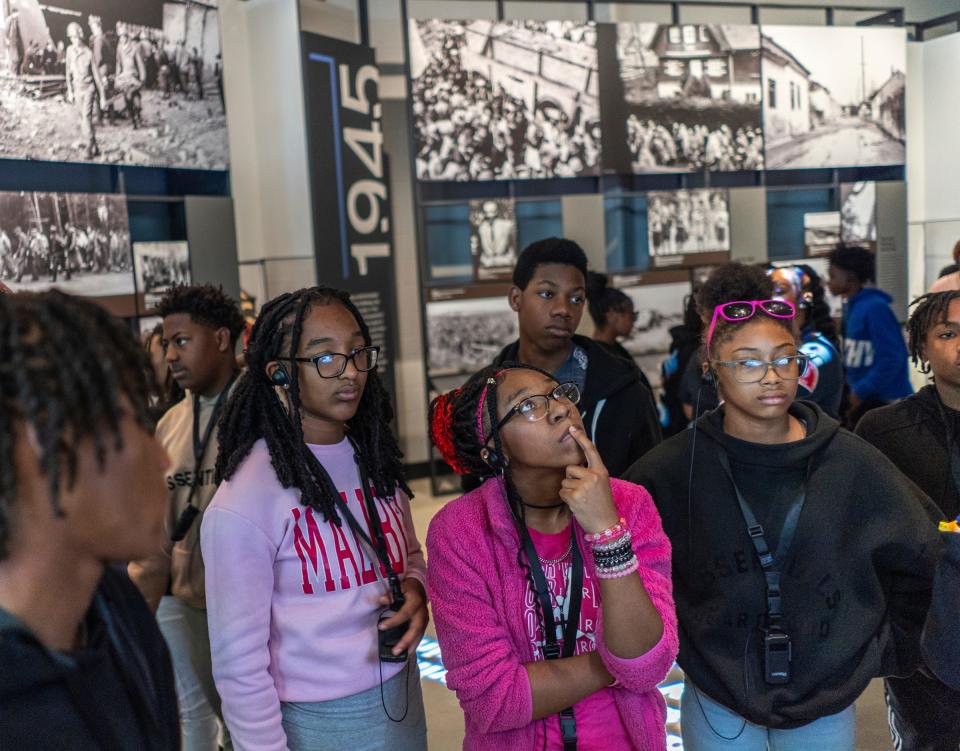

“It takes these huge numbers —3 million Polish Jews died in the Holocaust, 100,000 from Hungary, 100,000 from other countries, 1.5 million from Russia—and it makes them individuals. That’s what is truly special: It individualizes. Otherwise, you become numb from big numbers. For me, being in front of students and sharing my mother’s story, but (also) really my story as a child of a survivor, not only honors her. It also underscores that every survivor, and those who didn’t survive, has their own individual story.”
The HC’s director of marketing and communications, Gabriella Burman, told the Free Press The HC has also done custom private tours for a variety of regional groups from different spheres of life.
“We had the University of Michigan football team out,” Burman said. “We had the Detroit Pistons organization. The Farmington Hills Police Department has had their entire department trained by our education staff—we have a security sector specialist here. We have law firms, university departments, medical students, journalists … we gave a custom tour to the Detroit Jewish News staff specifically on the role of the media during the war.
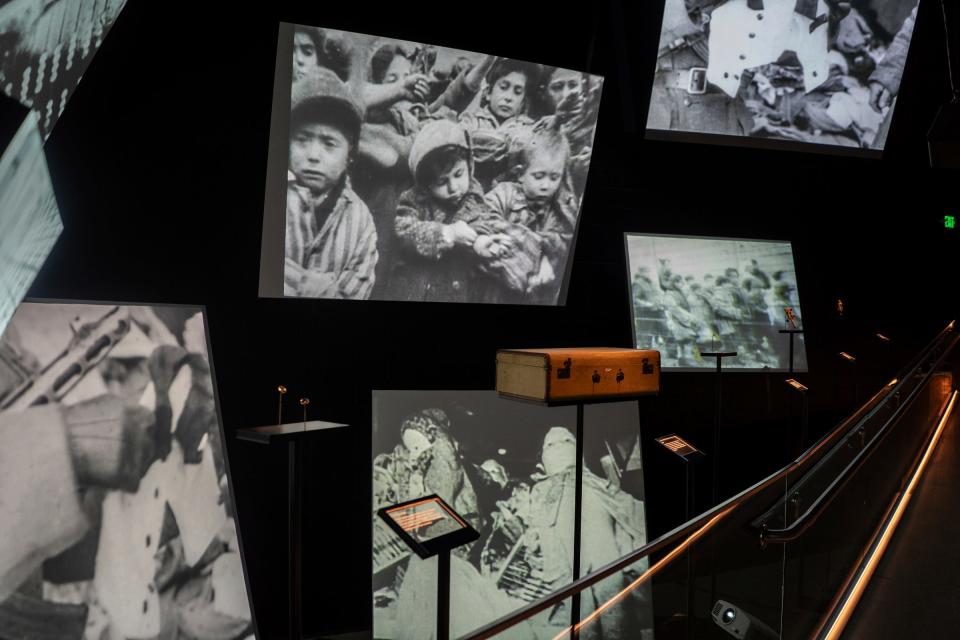

“What’s great about our education team is that we can really meet the needs of every institution and tailor the education to meet either curricular needs or organizational needs, even extending to DEI initiatives or social responsibility programs.”
Related: A metro Detroit museum tour: Everything from the DIA to Hamtramck history to African beads
Making a difference
The HC reaches more than 150,000 visitors annually through in-person and virtual programs, exhibit tours, and teacher training workshops.
But what’s perhaps the most impactful part of The HC experience is not actually a part of the core exhibition. After exiting the exhibit, visitors pass by open meeting rooms that might seem to hold no consequence. But, upon entry, a closer look reveals that the rooms are covered from floor to ceiling with photographs of Michigan-based Holocaust survivors and their families, hundreds of people who not only survived but thrived in local communities.
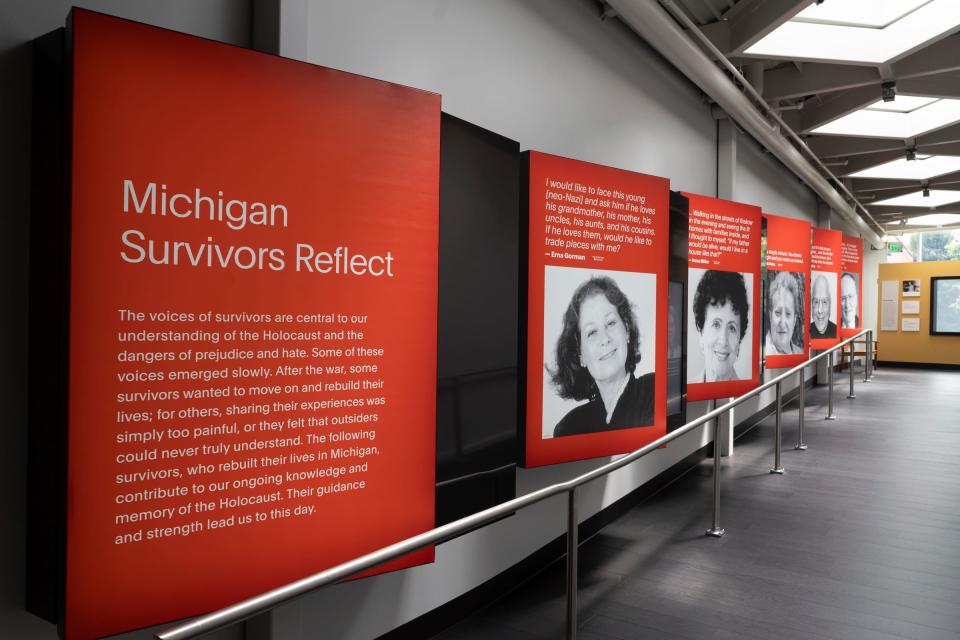

It is the opposite of extermination; it is a triumph against the goals of the Nazis, and a profoundly uplifting way to end an experience at the center.
Mulder urged previous visitors to return to see the new exhibition and encouraged area residents who’ve never been to make an active choice to change that.
“If you’ve been waiting to come here, now is the absolute best time,” he said. “And if it’s been a while, this has been made in part to be valuable to return to. If you were to come in today, this new exhibit has really been done in such a way that bringing friends or your parents or your children of a certain age is also a valuable and meaningful experience. It’s not necessarily a one-and-done exhibit. If you only get one chance in your life to come here, absolutely do it; it will be worth it. But, also, don’t hesitate to return.
“I believe very, very strongly in the fact that learning about this atrocity leads a lot of people to be better people. The compassion that we can develop by learning about this subject and learning about it in the way that we (present) it here genuinely gives people the tools they need to make a positive impact in their world and in themselves. And I wouldn’t be here if I didn’t believe that.”
Pondering a dark history
On Sunday, June 2, at 2:30 p.m., The HC (in partnership with Oakland University) will host a discussion on the role of corporate complicity during the Holocaust. David de Jong, author of “Nazi Billionaires: The Dark History of Germany’s Wealthiest Dynasties” and Dr. Steven Stanton, Associate Professor of Marketing at Oakland University, will explore how German business moguls seized Jewish-owned entities and exploited Jews as slave laborers during World War II.
The event will raise the questions of whether the moguls were driven by Nazi ideology or were unscrupulous opportunists, and will discuss how the heirs of those German tycoons are dealing with the fallout today.
The event costs $10 admission (or free with membership) and will be held in-person only at The Zekelman Holocaust Center, 28123 Orchard Lake Rd., Farmington Hills. To register, visit holocaustcenter.org/June.
Contact Free Press arts and culture reporter Duante Beddingfield at [email protected].
This article originally appeared on Detroit Free Press: Zekelman Holocaust Center’s $31M renovation puts survivors first
Source Agencies

